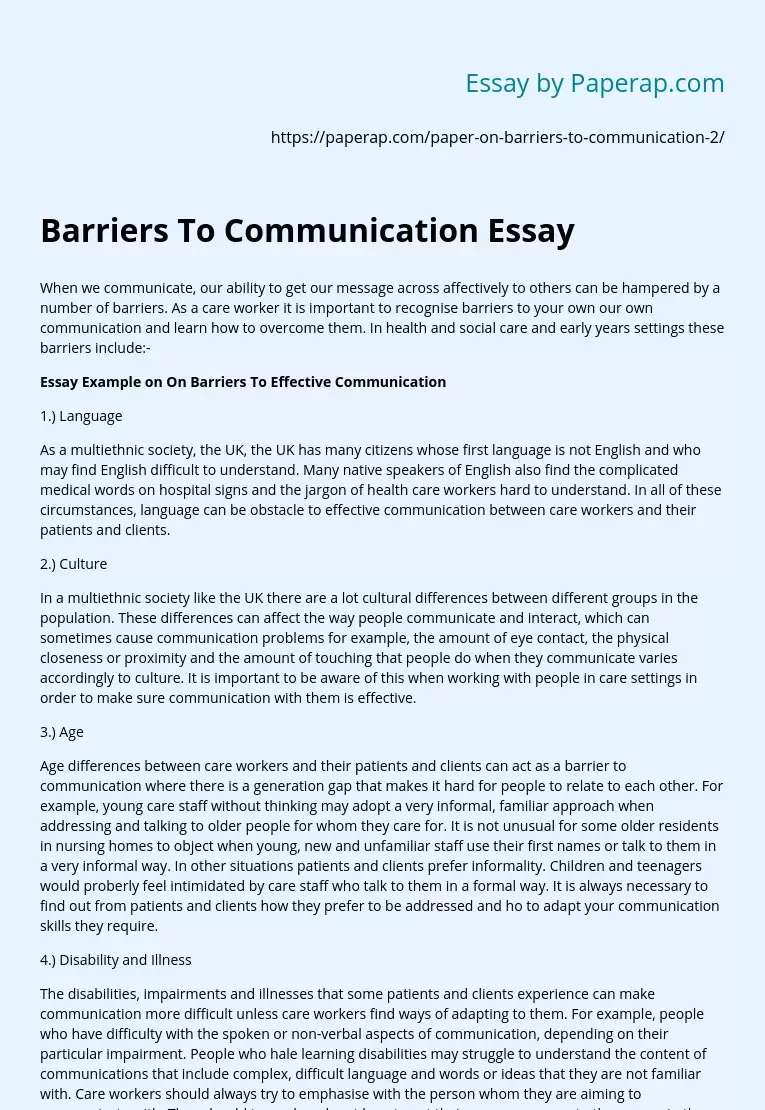Barriers To Communication Essay
When we communicate, our ability to get our message across affectively to others can be hampered by a number of barriers. As a care worker it is important to recognise barriers to your own our own communication and learn how to overcome them. In health and social care and early years settings these barriers include:-
Essay Example on On Barriers To Effective Communication
1.) Language
As a multiethnic society, the UK, the UK has many citizens whose first language is not English and who may find English difficult to understand.
Many native speakers of English also find the complicated medical words on hospital signs and the jargon of health care workers hard to understand. In all of these circumstances, language can be obstacle to effective communication between care workers and their patients and clients.
2.) Culture
In a multiethnic society like the UK there are a lot cultural differences between different groups in the population. These differences can affect the way people communicate and interact, which can sometimes cause communication problems for example, the amount of eye contact, the physical closeness or proximity and the amount of touching that people do when they communicate varies accordingly to culture.
It is important to be aware of this when working with people in care settings in order to make sure communication with them is effective.
3.) Age
Age differences between care workers and their patients and clients can act as a barrier to communication where there is a generation gap that makes it hard for people to relate to each other.
For example, young care staff without thinking may adopt a very informal, familiar approach when addressing and talking to older people for whom they care for. It is not unusual for some older residents in nursing homes to object when young, new and unfamiliar staff use their first names or talk to them in a very informal way. In other situations patients and clients prefer informality. Children and teenagers would proberly feel intimidated by care staff who talk to them in a formal way. It is always necessary to find out from patients and clients how they prefer to be addressed and ho to adapt your communication skills they require.
4.) Disability and Illness
The disabilities, impairments and illnesses that some patients and clients experience can make communication more difficult unless care workers find ways of adapting to them. For example, people who have difficulty with the spoken or non-verbal aspects of communication, depending on their particular impairment. People who hale learning disabilities may struggle to understand the content of communications that include complex, difficult language and words or ideas that they are not familiar with. Care workers should always try to emphasise with the person whom they are aiming to communicate with. They should try and work out how to get their message across to the person in the most effective way.
Barriers To Communication Essay. (2019, Nov 27). Retrieved from https://paperap.com/paper-on-barriers-to-communication-2/

